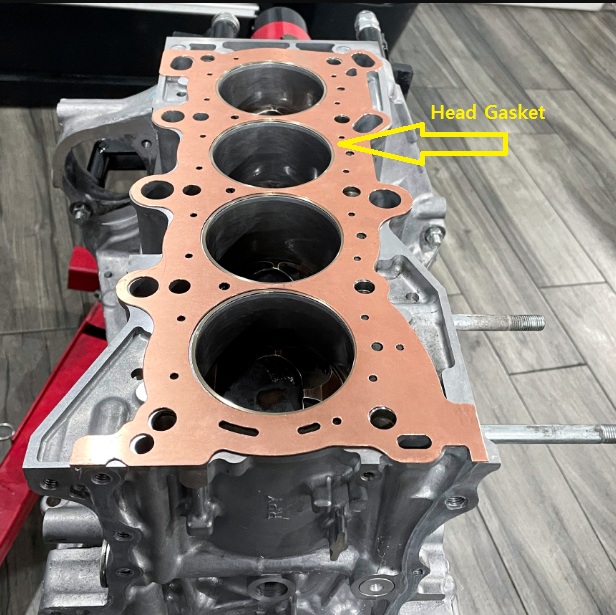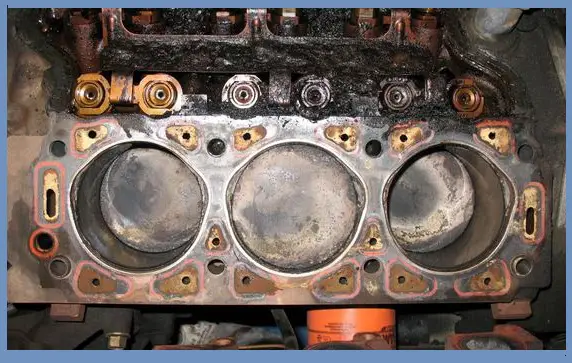The head gasket is part of an internal combustion engine that provides a seal between the cylinder head and the engine block. The main purpose of the engine head gasket is to prevent oil and coolant from leaking into the combustion chamber and to seal the combustion gas.
cylinder head gasket ensures that the pressure generated by the spark plug that ignites the air-fuel mixture is retained in the combustion chamber. The head gasket allows the vehicle engine not only to generate enough power to run the vehicle but also to guide toxic gases to the exhaust system and prevent them from leaving the chamber.

Modern cars and other vehicles have head gaskets made of multi-layered steel glued with elastomer for increased durability and longevity. Older vehicles had gaskets made of graphite or asbestos.
However, modern head gaskets are superior to asbestos gaskets due to their low tightness and minimal health risk.
The combustion chamber has pistons that require high pressure to burn normally, and gaskets help maintain that pressure.
Table of Contents
Role of Head Gasket in an Internal Combustion Engine
The head gasket is a very important part of the engine. Internal combustion engines are used to seal various processes, allowing oil to move properly through the engine to cool and lubricate the engine. It protects the engine from many troubles like leaks.
A small leak in the cylinder head gasket can damage the car engine. Blow-off of the head gasket has some symptoms, which will be explained in detail in this article. This article mainly discusses head gasket blows, signs of head gasket failure, and the cost of repair and replacement.
Blown Head Gasket
A failure of the gasket between the engine block and the cylinder head causes the head gasket to blow off.
Also known as a head gasket leak. This gasket between the oil return passages seals the coolant passages, pistons, and cylinders.
If the seal is damaged, problems will occur such as toxic gas leaks from the chamber, oil leaks, coolant leaks, etc. If the cylinder head gasket is blown, the engine may be damaged or completely damaged.

Blow-off of the head gasket is due to overheating of the engine, explosion, or use of an old gasket. In most cases, this is caused by the problem of overheating, as the overheating of the engine increases the thermal energy and puts high stress on the seal.
Reasons Behind Blown Head Gasket
- Excessive heating: The vehicle manufacturer has specified the highest heat transfer capacity of the engine. If this heat exceeds normal levels, the engine may overheat and the head gasket may blow. Extreme heat can over-expand the cylinder head and engine block, leading to head gasket failure.
- Age: Over time, the head gasket seal may be damaged and may not function properly to prevent leaks and other problems. The final age of the seal is stated in the manufacturer’s suggestion. It should be replaced according to the manufacturer’s instructions before major problems occur.
- Head or block distortion or cracking: Engines with overheating problems can cause cracking or distortion in the engine block or cylinder head. This will change the way the head gasket is sealed and may cause leaks.
- Explosion: This is another reason for head gasket breakage as it can damage or trip the armature and release cylinder pressure from the armature.
Various Signs of Blown Head Gasket
- Excessive engine overheating
- Power loss
- Visible smoke from your car’s exhaust
- Contaminated engine oil
- Low coolant level
Conclusion
The head gasket is a very important part of the engine. If the head gasket fails or is blown off, it should be replaced as soon as possible. If you do not replace and ignore damaged or failed gaskets, the engine can fail completely and is too costly.
